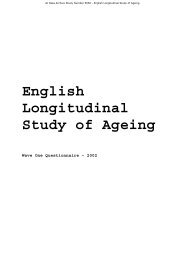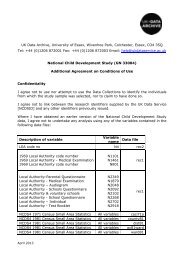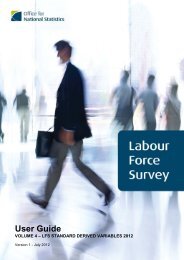The Seven Principles of Public Life - ESDS
The Seven Principles of Public Life - ESDS
The Seven Principles of Public Life - ESDS
Create successful ePaper yourself
Turn your PDF publications into a flip-book with our unique Google optimized e-Paper software.
(21 per cent), those with no qualifications most likely to do so (44 per cent). It should be<br />
added that, while older, less educated people attached more importance than others to<br />
politicians maintaining high standards in their private lives, they still considered this aspect<br />
<strong>of</strong> behaviour as being the least important <strong>of</strong> the attributes covered in the research.<br />
3.3 Expectations <strong>of</strong> senior public <strong>of</strong>ficials<br />
Respondents were asked to rate the importance <strong>of</strong> the same set <strong>of</strong> attributes for senior<br />
public <strong>of</strong>ficials. This group was defined for respondents as being “people with senior<br />
management jobs in government departments, local councils or other public bodies, who make important<br />
decisions about the service they work in. For example, the head <strong>of</strong> a council’s housing department, the chief<br />
executive <strong>of</strong> an NHS hospital, a chief police <strong>of</strong>ficer, etc. <strong>The</strong>se people have not been elected to their jobs, but<br />
have had to apply for them.” <strong>The</strong> question was asked in the same way as for MPs and<br />
government ministers. <strong>The</strong> results are summarised in Table 5.<br />
42 BMRB International Report: Survey <strong>of</strong> public attitudes towards conduct in public life

















